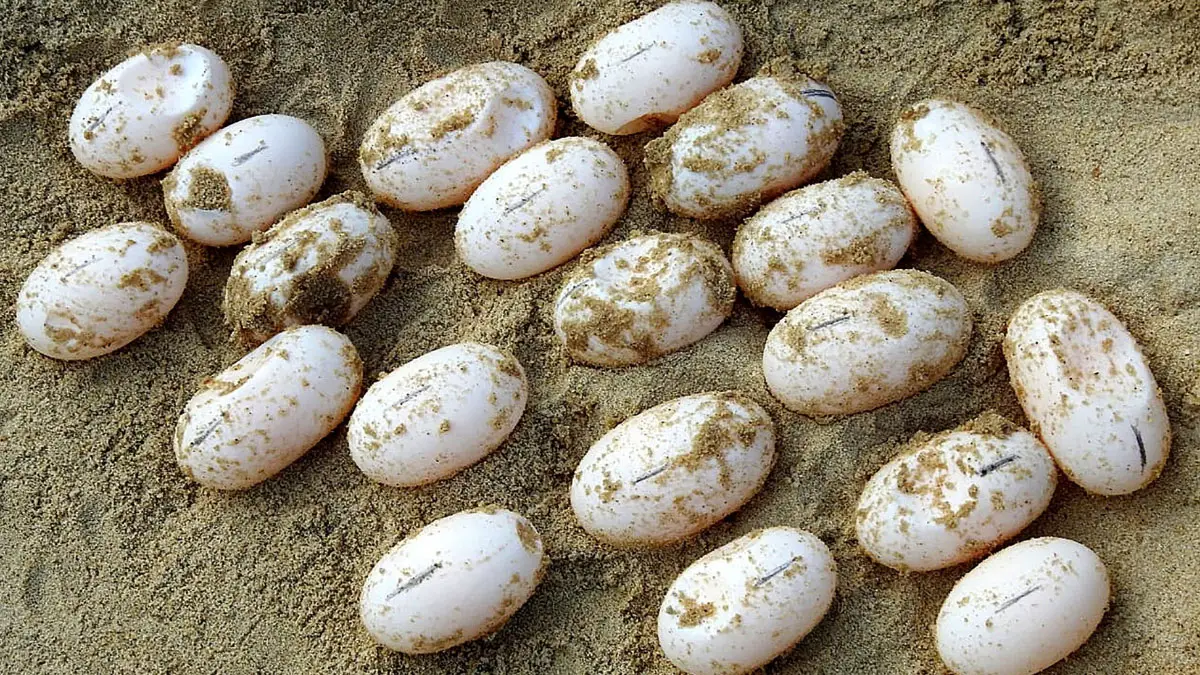How to Hatch Turtle Eggs At Home Without An Incubator?
If you want to hatch turtle eggs at home but don’t have an incubator, you may be wondering if there are other alternative hatching methods to use. This article explores other easy methods for hatching turtle eggs without using the incubator.
How to hatch turtle eggs at home without an incubator? To hatch turtle eggs at home without an incubator, you need to create a suitable incubation environment that mimics the natural conditions the turtle would hatch in the wild.
This article will share more details on how to hatch eggs at home without an incubator. We’ll discuss how to create the ideal incubation environment, ideal conditions for turtle eggs to hatch, and other helpful tips.
How to hatch turtle eggs at home without an incubator?
Contents
If your female turtle has laid eggs but you do not have a reptile incubator to hatch them, do not worry. You can still successfully hatch the eggs using alternative methods.
Below, we take you through our step-by-step guide on how to hatch the eggs without using an incubator.
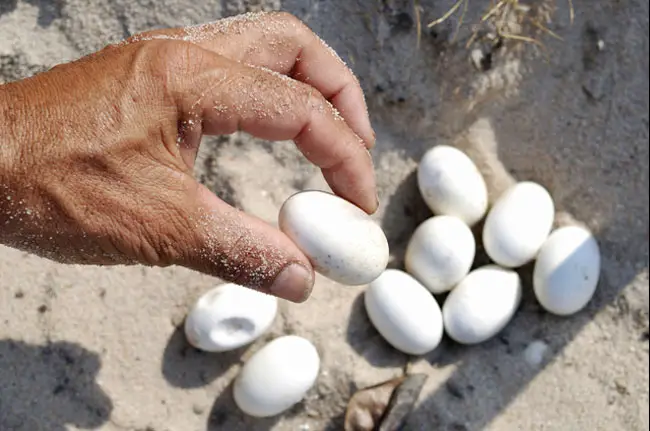
Step-by-step guide to hatching turtle eggs without an incubator:
Step 1. Prepare a suitable nesting site
The ideal nesting box for your turtle eggs should be warm and moist. You can create a nesting site by using a wooden box, plastic container, or even Styrofoam cooler.
Just ensure the container you use is spacious enough to accommodate all the eggs and enable the baby turtles to move freely after hatching.
Step 2. Add substrate to the nesting area
Next, you need to choose a suitable substrate to use in your nesting box.
The best substrate to use includes peat moss, vermiculite, sand, and soil, or you can use a mixture of them to create a moist substrate that is not too wet.
However, ensure the substrate you put in the box is deep enough to cover all your eggs.
Step 3. Put your turtle eggs in the substrate
Now transfer the eggs from the laying site to your nesting box. Turtle eggs are usually delicate and sensitive, so you should be careful with the whole transfer process.
You should also not change the orientation of the eggs. Changing their direction or rotating them may affect the sensitive embryos developing inside.
Be sure to bury the eggs halfway in the moist substrate to increase their survival chances.
Step 4. Make the nesting area warm and humid
Turtle eggs require specific temperature and humidity conditions to hatch successfully.
The temperature should be between 80 and 85 degrees Fahrenheit while the humidity level should be around 80%.
Since you do not have an incubator device, you can achieve the ideal temperature and humidity settings using a heat source and moist substrate respectively.
Regularly monitor the temperature and humidity to ensure they stay at the optimal settings.
Step 5. Give the eggs time to hatch
Once you’ve everything set in place correctly, all that remains is to set the eggs. The eggs may take anywhere from 45 to 90 days, depending on the species, to hatch into baby turtles.
Throughout the incubation, you do not want to disturb or touch the eggs to increase their chances of hatching successfully. You should just regularly check on them and ensure the temperature and humidity stays consistent.
Below is a video on how to come up with a DIY turtle eggs incubator
Video:
How to hatch box turtle eggs without an incubator?
Hatching box turtle eggs without an incubator is pretty much the same as hatching other turtles’ eggs. You can follow the step-by-step guide we have discussed above to hatch your box turtle eggs.
The key thing to remember is to mimic the turtle eggs’ natural hatching conditions, keep temperature and humidity consistent, and be patient with the whole process as the eggs will take 2 to 3 months.
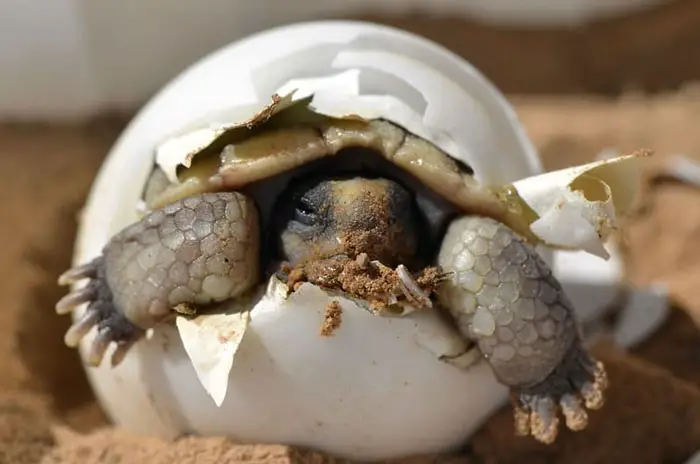
Can you hatch turtle eggs in a chicken incubator?
Yes, you can hatch turtle eggs in a chicken incubator. However, we do not recommend using this type of incubator, as the turtle egg-hatching requirements are completely different from those of chicken.
Turtles require a different humidity, temperature, and even medium for hatching which the chicken incubator does not provide. However, you can still use this type of incubator with some minor changes and a little bit of creativity.
Overall, if you must use an incubator, then you should use one specially designed for reptile eggs.
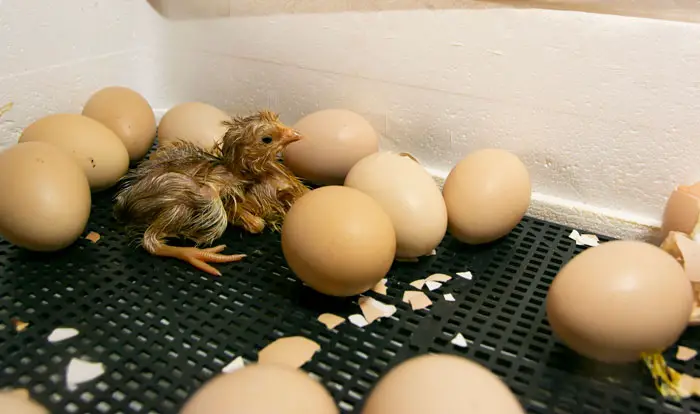
Do turtle eggs need light to hatch?
Turtle eggs do not require light to hatch. The key requirements include proper warmth of around 80 to 85 degrees Fahrenheit and high humidity—up to 80%.
Turtles in the wild usually dig nests and lay their eggs in the ground, which provides them with the humidity and warmth they require to hatch.
While sunlight plays a role in the eggs’ temperature in the wild, the eggs do not necessarily need it or the moonlight to hatch. Thus, light isn’t necessary for the eggs to hatch.
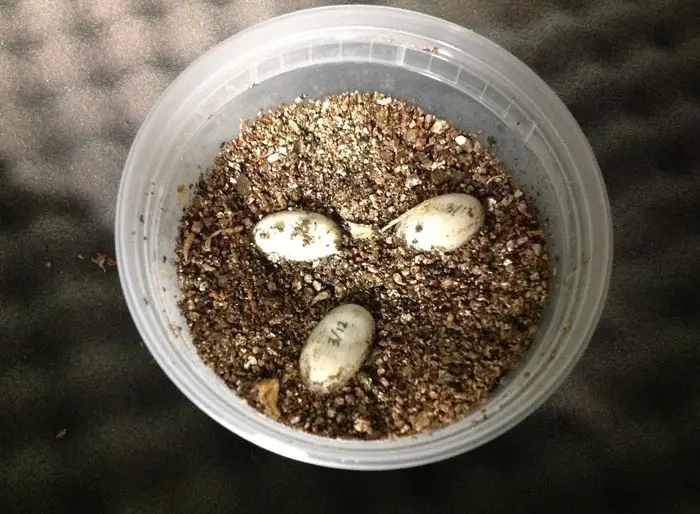
Can turtle eggs hatch without sand?
Turtles do not necessarily require sand to hatch. However, you must provide them with a suitable incubation medium that provides them with moisture as well as support and even allow for proper gaseous exchange. Alternative turtle incubation mediums to sand you can use include moist peat moss, vermiculite, and perlite.
Conclusion
This article has just discussed the natural ways to hatch turtle eggs without an incubator. The trick is to create an incubation environment that mimics the turtle eggs’ natural hatching environment. Make sure the temperature and humidity levels remain consistent and provide a suitable medium for nesting the eggs. Avoid turning or handling your turtle eggs as much as possible as the embryos inside are quite sensitive. Above all, ensure you regularly monitor the eggs to ensure the medium is still damp. If you follow the steps outlined in this guide, you should be able to successfully hatch adorable baby turtles in about 70 to 90 days using your simple DIY home incubator.

